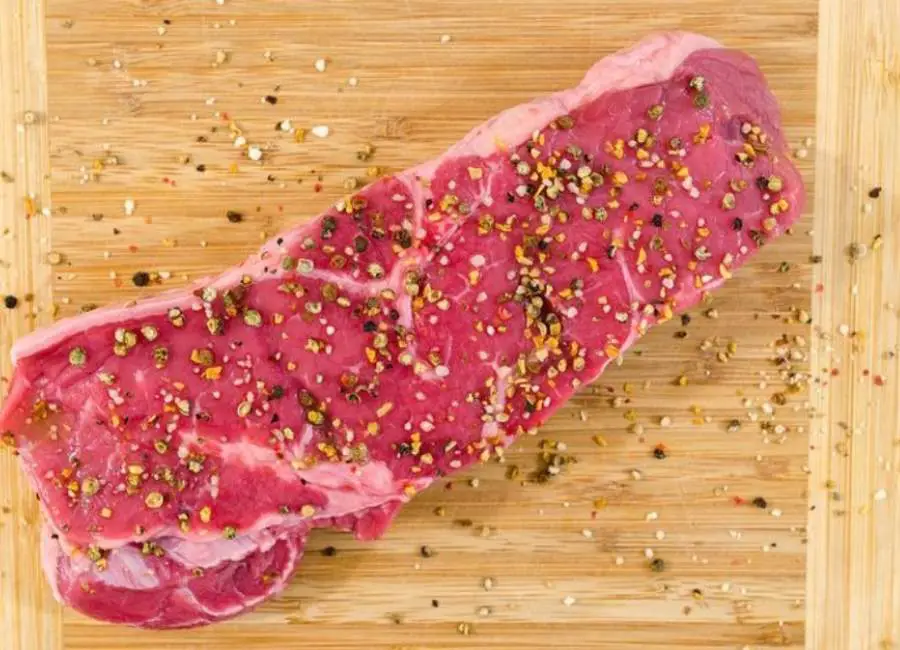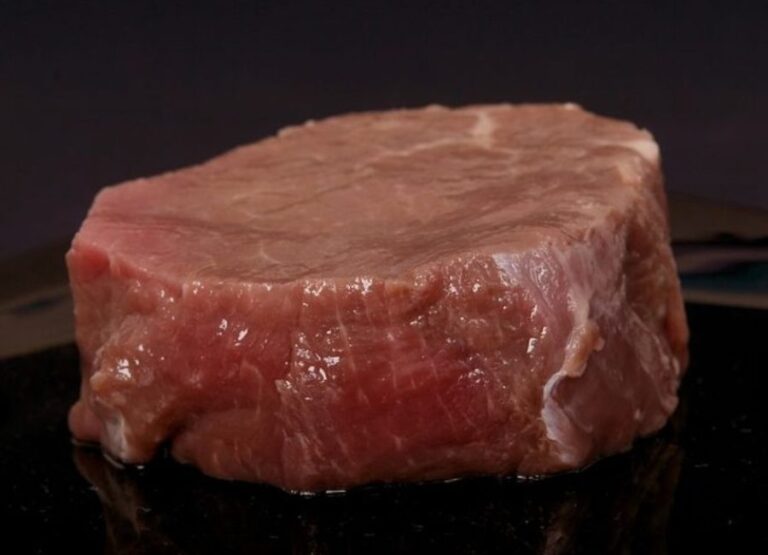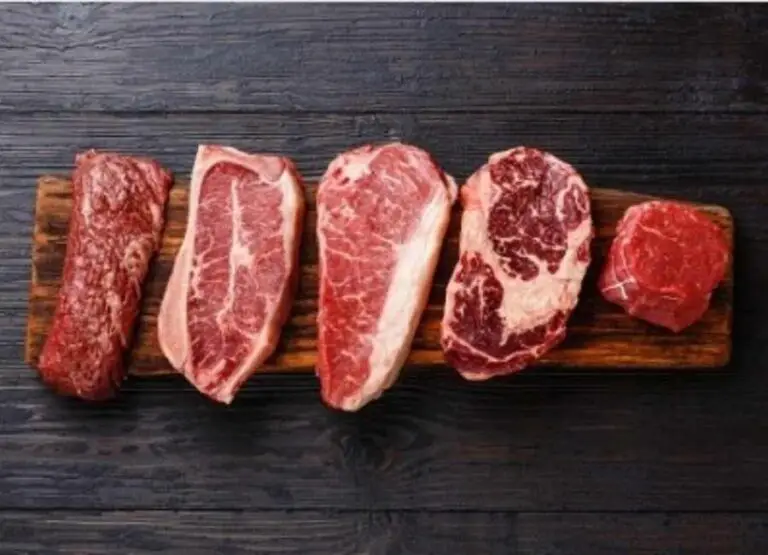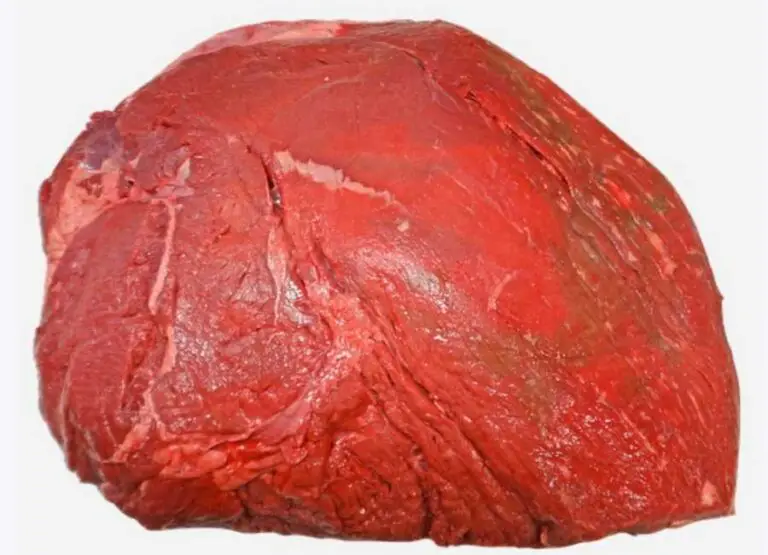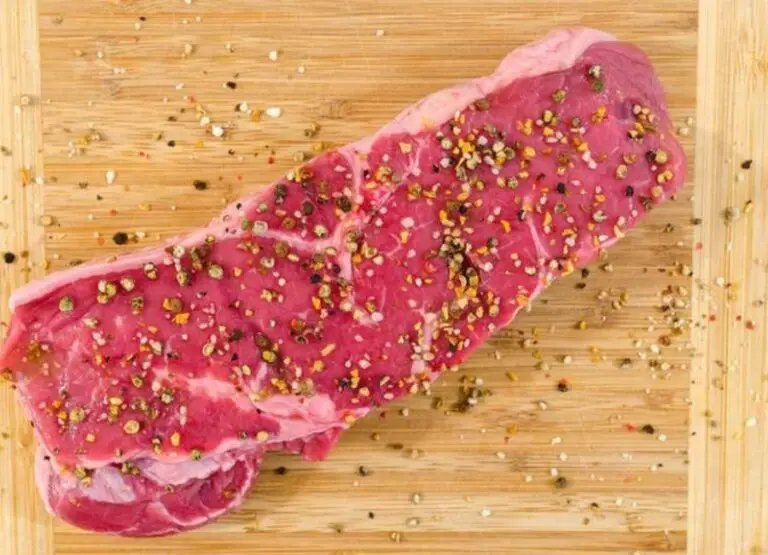12 Top Benefits Of Not Eating Red Meat And Pork
Let’s discuss the benefits of not eating red meat and pork…
In this post, we’ll explore the many reasons why reducing or eliminating red meat and pork from your diet can be a smart and compassionate choice.
Not only can this choice have positive impacts on your health and well-being, but it can also be good for the environment and animal welfare.
Benefits Of Not Eating Red Meat And Pork
There are many benefits to not eating red meat and pork.
Here are some common benefits:
1. Reduced Risk of Heart Disease
Due to their high quantities of saturated fat, red meat and pork can raise blood levels of LDL cholesterol (also known as “bad” cholesterol”).
A risk factor for heart disease, stroke, and other cardiovascular disorders is having high levels of LDL cholesterol.
You may reduce your consumption of saturated fat and thereby lessen your risk of heart disease by cutting back on or completely removing red meat and pork from your diet.
2. Lowered Risk of Cancer
Consuming red meat and processed meat may raise your chance of developing some cancers, most notably colon cancer.
Red meat is a possible carcinogen according to the World Health Organization, whereas processed meat is a known carcinogen.
It is believed that substances found in these meats, such as heme iron and nitrites, may aid in the growth of cancer.
You may reduce your chance of getting cancer by staying away from red meat and pork.
3. Better Weight Management
Foods that are calorie-dense, or have a high calorie content per unit of volume, include red meat and pork.
Excessive consumption of these meats can lead to weight gain, which increases the risk of developing a number of chronic conditions.
You could find it simpler to control your weight if you cut back on or completely eliminate red meat and pork from your diet.
4. Improved Digestion
Pork and red meat might be difficult for some individuals to digest, especially if they have digestive problems like irritable bowel syndrome (IBS).
Due to their high protein and fat content, these meats may take longer to digest.
You might find that cutting out red meat and pork helps with digestion and lessens IBS symptoms.
5. Lower Risk of Diabetes
Consuming red meat and processed meat may increase the risk of type 2 diabetes.
These meats’ high heme iron and saturated fat content have been linked to insulin resistance, which is a risk factor for developing diabetes.
The chance of having diabetes may be lowered if you stay away from pork and red meat.
6. Reduced Risk of Inflammation
Inflammation in the body is linked to a number of health problems, such as chronic pain, autoimmune illnesses, and cardiovascular disease.
Red meat and pork can add to this inflammation.
These meats’ high quantities of saturated fat and heme iron are believed to play a role in inflammation.
You may feel less inflammation if you consume less or no red meat and pork.
7. Reduced Carbon Footprint
Red meat and pork production may have a major negative impact on the environment in terms of greenhouse gas emissions, land consumption, and water use.
14.5% of the world’s greenhouse gas emissions are attributable to livestock production.
You may lessen the effects of climate change and minimize your carbon footprint by eating less or no red meat and pork.
8. Lowered Risk of Foodborne Illnesses
Salmonella and E. coli are two dangerous bacteria that can infect red meat and pork and lead to foodborne diseases.
They might vary from minor gastrointestinal issues to serious infections that pose a life-threatening hazard.
You may reduce your chance of becoming sick from tainted meat by avoiding certain meats.
9. Reduced Antibiotic Exposure
Antibiotic resistance in humans can result from the widespread use of antibiotics by farmers to maintain the health of their animals.
This may make using medicines to treat infections and diseases more challenging.
You may lessen your exposure to antibiotics and aid in the development of antibiotic-resistant bacteria by staying away from red meat and pork.
10. Adding More Variety in Your Diet
You could be inspired to try new foods and include a larger range of fruits, vegetables, and plant-based proteins in your diet if you refrain from eating red meat and pork.
This can assist you in obtaining the nutrients you need and enhance your general health and wellness.
A plant-based diet has also been associated with a reduced risk of chronic illnesses like cancer, diabetes, and heart disease.
11. Ethical Considerations
Some people choose to abstain from eating red meat and pork due to moral concerns regarding the welfare of animals.
The cattle business has come under fire for its cruel methods and detrimental effects on animal welfare.
You may feel better about your dietary decisions and make them more in line with your own ideals if you refrain from eating red meat and pork.
12. Saving Cost
Red beef and pork may be pricey, especially if you choose premium or organic varieties.
You may spend less on groceries and possibly have more money left over in your budget for other nutritious foods, including fruits, vegetables, and whole grains, if you cut back or eliminate these meats from your diet.
Alternatives to Red Meat and Pork
Here are some common alternatives to red meat and pork:
- Chicken – Chicken is a popular protein-rich meat that is also lower in fat than red meat. It is versatile and can be cooked in a variety of ways, making it easy to incorporate into many dishes.
- Turkey – Turkey is another lean meat that is a popular alternative to red meat. It is low in fat and can be used in many ways, from turkey burgers to roasted turkey breast.
- Fish – Fish is an excellent source of protein, omega-3 fatty acids, and other essential nutrients. Salmon, tuna, and mackerel are particularly rich in omega-3s.
- Seafood – Seafood is another good source of protein, and many types of seafood are also rich in omega-3s.
- Beans and Legumes – Beans and legumes are a great vegetarian source of protein. They are also high in fiber and many essential vitamins and minerals.
- Tofu and Tempeh – Tofu and tempeh are vegetarian proteins that can be used in a variety of dishes. They are particularly popular in Asian cuisine.
- Nuts and Seeds – Nuts and seeds are another good vegetarian source of protein. They are also high in healthy fats and many other nutrients.
- Quinoa – Quinoa is a gluten-free whole grain that is high in protein and many other essential nutrients. It can be used in a variety of dishes, from salads to stir-fries.
- Other Grains – Many other grains, such as brown rice, barley, and amaranth, are also good sources of protein and other essential nutrients.
These are just a handful of the numerous meat substitutes that are readily accessible in grocery shops and may be used to make delectable and healthful meals in place of red meat and pork.
Tips for Reducing Red Meat and Pork Consumption
Here are some common tips for reducing the consumption of red meat and pork:
- Reduce portion sizes: Eating smaller portions of meat can help reduce overall consumption.
- Substitute with plant-based proteins: Incorporate plant-based sources of protein, such as beans, nuts, and tofu, as substitutes for meat in meals.
- Opt for leaner cuts: Choosing leaner cuts of meat, such as chicken breast or sirloin beef, can help reduce overall fat and calorie intake.
- Explore other cuisines: Many cuisines around the world offer delicious meatless dishes, such as Indian dal or Middle Eastern falafel.
- Plan meatless meals: Plan meals that don’t include any meat, such as vegetable stir-fries or lentil soups.
- Try meat alternatives: Consider trying meat alternatives such as Beyond Meat, Impossible Meat, or Quorn, which mimic meat in flavor and texture.
- Limit processed meats: Processed meats, such as bacon or sausage, have been associated with increased risk of certain diseases. Limit these foods as much as possible.
- Be mindful of meat consumption outside of meals: Be aware of the amount of meat consumed outside of meals, such as in snacks or fast food.
- Educate yourself about the benefits: Research the benefits of reducing meat consumption for both personal health and environmental sustainability in order to stay motivated and committed to the change.
You may drastically reduce your intake of red meat and pork by implementing these lifestyle changes, which will help your health and the environment.
Related questions
Why is it beneficial to not eat red meat and pork?
By reducing the intake of red meat and pork, you decrease your risk for various health problems, including heart disease, stroke, and certain types of cancer.
What can I eat instead of red meat and pork?
You can eat various plant-based sources of protein such as beans, legumes, lentils, tofu, and tempeh.
Soy products are also a great option as they contain all essential amino acids.
Will I miss out on essential nutrients by not eating red meat and pork?
No, as long as you maintain a well-balanced diet, you can get all the essential nutrients you need from plant-based food sources.
Can I still get enough protein if I stop eating red meat and pork?
Yes, there are numerous non-meat sources of protein, and if you consume a varied diet, you can easily meet your daily protein needs.
Is it expensive to switch to a meat-free diet?
No, plant-based foods can be cost-effective and are often cheaper than purchasing meat products.
Additionally, you can save money on medical expenses by maintaining a healthy diet.
Will I feel less energetic if I stop eating red meat and pork?
No, in fact, a plant-based diet can help increase energy levels and improve cognitive function due to the high fiber content and the absence of processed dietary fat found in meats.
Conclusion
In conclusion, there are countless benefits to cutting out red meat and pork from your diet.
From improved heart health to reduced risks of cancer and diabetes, the evidence is clear that plant-based diets can lead to a longer, healthier life.
Not to mention, the positive impact on our environment of reducing meat consumption cannot be ignored.
So, if you’re looking to make a positive change for your health and the planet, consider swapping out that steak for a delicious plant-based alternative.
Your body and the earth will thank you.
References
Mayoclinic. Meatless meals: The benefits of eating less meat
Webmd. What Happens When You Stop Eating Meat
Healthline. 6 Benefits of Not Eating Meat (or at Least Less of It)

